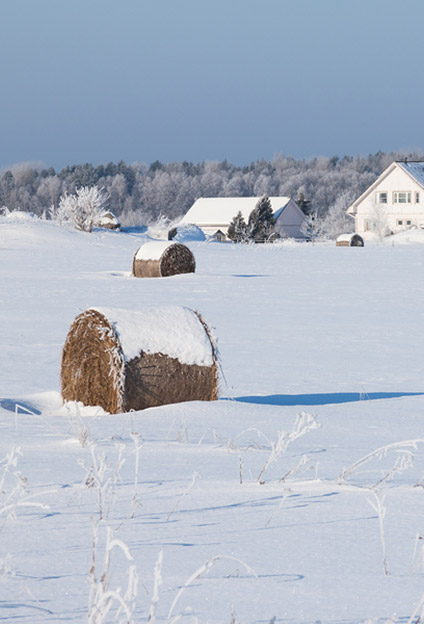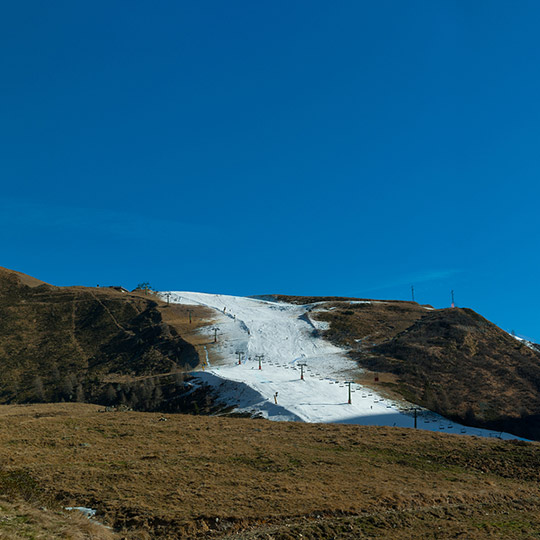Precipitation: Snowfall
Snow can provide up a significant portion of the annual precipitation total in northern climates, which increases the soil moisture. Roots continue to grow, even during the winter as long as there is moisture in the soil system. Air caught between the snow acts as a soil protection insulator. Snowflakes contain bits of nitrogen, nitrates and ammonium from the atmosphere and deliver the nutrients to the soil as it melts during the spring. As livestock graze on winter forage, they are intaking snow, so they ingest part of their needed water requirement.
Snow on the ground for an extended period of time keeps the plants dormant longer and slows growth of the plants. Late season snows can damage the sensitive blooms or buds on a plant. These types of snows can also lower the temperature of the soil. Some growers may invest in warmers, to help melt the snow, which be a large energy cost.

